Stay in the know on all smart updates of your favorite topics.
Are you interested in the experiences of others working in smart city projects and organizations? The Smart City Academy provides available knowledge about smart city projects and can help you with project development. This Smart City Academy page provides you with information and researches about the impact and conditions of smart city projects. Professors, teachers and students study the initiation, management, collaboration and scaling of smart city projects and would like to share these results with you. They do so by organizing events and masterclasses, by developing smart city tools and methodologies and by making research and outcomes accessible. You can find everything here. And the good news is.... You can add your knowledge too! Are you working on Smart City research? Please feel free to share your knowledge in the Academy section, under ‘Other research and theses’. The Smart City Academy is powered by the Amsterdam University of Applied Sciences. If you have any questions, you can contact smartcityacademy@hva.nl
"City Brain can help solve urban issues in Amsterdam"
In a "city brain" government, businesses, and citizens bring together data, for example on traffic flows, garbage pick up and activities in the neighbourhood. This will give better insights in the issues in the city and possible solutions. Professor Nanda Piersma, professor of Urban Analytics at Amsterdam University of Applied Sciences and Centrum Wiskunde & Informatica calls for a City Brain as a public service. She held her public lecture on 17th of April 2018.
Further tekst in Dutch.
Steden verzamelen steeds meer data, bijvoorbeeld over het groeiend gebruik van elektrische laadpalen, slimme vuilophaalsystemen en goede verkeersdoorstroming. De stad Amsterdam loopt in Nederland voorop in het verzamelen en publiceren van dergelijke ‘city data’. Datagedreven dienstverlening kan de stad leefbaarder maken, kosten besparen en verspilling verminderen. Voorwaarde is wel dat zo’n City Brain ook veilig, transparant en democratisch is. Dr. Nanda Piersma is als bijzonder lector Big Data in de stad verbonden aan de HvA (de faculteit Techniek en de faculteit Digitale Media en Creatieve Industrie) en het Centrum voor Wiskunde en Informatica (CWI). Zij pleit voor de ontwikkeling van een City Brain als openbare dienst, net als bijvoorbeeld voor water en elektriciteit.
Verantwoordelijke data science
Nanda Piersma: “Amsterdam heeft de ambitie om te groeien en staat daarom voor grote uitdagingen op het gebied van dienstverlening, mobiliteit, energiebehoefte, bestuurs- en samenwerkingsvormen en leefbaarheid. Door ICT en de beschikbaarheid van grote hoeveelheden informatie, Big Data, kunnen we veel problemen in de stad beter inzichtelijk maken en nieuwe oplossingen bedenken. In steden als Parijs, Singapore en Macau is de ontwikkeling van City Brains al een stap verder dan bij ons, bijvoorbeeld op het gebied van verkeersdoorstroming, parkeren, veiligheid en crowd control. Wat we daarvan kunnen leren is dat het essentieel is om de privacy van data te waarborgen. Privacy is een randvoorwaarde om mensen datagedreven oplossingen en intelligente systemen te laten vertrouwen. Ook moeten alle inwoners ervan kunnen profiteren en er invloed op kunnen uitoefenen. We hebben daarom een ‘verantwoordelijke’ data science nodig, met begrijpelijke, transparante en veilige datamodellen.”
Inclusieve datapraktijken
“Steden functioneren beter als ‘urban computing’ een openbare dienst wordt, net als voorzieningen voor water, elektriciteit en dergelijke”, stelt Piersma. “Een city brain is een data-analyse systeem, bedoeld om city services te verbeteren. De data zijn afkomstig uit verschillende bronnen en van verschillende eigenaren. Zo brengt het Citizens Data Lab van de HvA bewonersinitiatieven bij elkaar in het kader van empowerment. De gemeente Amsterdam heeft daarvoor veel open data beschikbaar gesteld. Bewonersinitiatieven als VoorElkaarInDeBuurt, JeKuntMeer, AtlasVanDeWijk en Buuv kunnen deel gaan uitmaken van het City Brain. Ook staat de ontwikkeling van een Amsterdam Data Exchange (AMDEX) op ons verlanglijstje. Dat moet een veilige digitale marktplaats worden voor bedrijven, organisaties en overheden, waar data kunnen worden samengebracht voor een specifiek doel. Bedrijven kunnen door het samenbrengen van databronnen bijvoorbeeld betere onderhoudsvoorspellingen doen voor vliegtuigen, doordat ze niet alleen over de eigen data beschikken, maar ook over die van collega-vliegmaatschappijen.”
Big Data-station
De komende jaren werkt het team van het lectoraat Big Data in de stad van de HvA en het CWI samen met de stad aan het City Brain Amsterdam. “Maar de ontwikkelingen in de data science gaan zo razendsnel dat je dit vak niet op de traditionele manier kunt inbedden in het onderwijs”, zegt Piersma. “Want tegen de tijd dat je je curriculum hebt aangepast is de nieuw ontwikkelde kennis allang weer achterhaald. Daarom gaan we een Big Data-station opzetten. Daarin werken studenten, onderzoekers en docenten samen met overheden en bedrijven aan de verdere ontwikkeling datagedreven services voor de stad.” Op 12 april werd bekend dat Nanda Piersma is benoemd tot Comenius Senior Fellow, een onderwijsinnovatieprogramma van het Nationaal Regieorgaan Onderwijsonderzoek (NRO). Het bedrag van 100.000 euro gaat ze besteden aan de ontwikkeling van het Big Data-station.
We believe in the circular economy
Circularity
Here at VelopA, and the lasting positive and negative effects that our products have on the environment. Which is why I am proud to announce the launch of the VelopA Circular Collection. In early 2018, the results from a number of studies and partnerships formed in 2017 will be published. All of our product segments contain various products with a circular design. These include circular bicycle racks, waste bins, posts and outdoor benches. In 2018, we will continue to expand our circular product range and increase the circularity of our products. This means that circularity is constantly evolving in three ways: in terms of new materials, production methods and business models. Our aim is to be a frontrunner in this area.
For over 60 years VelopA has been setting the standard to enhance the appeal of public spaces. Together we want to play an even bigger role in improving the quality of life in towns and villages, and create public spaces everyone can enjoy. We use our knowledge and expertise to design unique solutions and develop sustainable products.
Excellence through innovation and design
VelopA has built a wide circle of clients in sectors such as government, architecture, education, health care, business, construction (ground, roads and waterways) and leisure. Together we design and develop total concepts and cutting-edge strategies that stand out through innovation and design.
High quality and sustainability
We only want the very best solutions for public spaces. That is why we choose to work with high-grade and sustainable materials, ensuring that our solutions not only have a long lifespan, but also contribute to a more sustainable society. We strive for circular entrepreneurship, with products that are 100% reusable.
Working together towards one goal
We would love to share our expertise in areas such as bicycle parking facilities, bicycle shelters, street furniture, outdoor sports and play facilities. By working closely with partners from our extensive network we are able to provide innovative solutions to any problem, tailored to meet its specific needs.
VelopA is the European leader in enhancing the appeal of public spaces and is part of the Crowd Group, together with IJslander and Cyclepods. We have our headquarters in the Netherlands, with further offices in Belgium, Germany and France. In order to service the rest of Europe, we work together with distributors.
Now, we are currently looking for ambassadors to introduce our Circular line and much more. So, are you a key project manager for the circular economy and Smart City, please contact me for much more information.
Organising supply via a hub: lessons learned form University of Amsterdam and Amsterdam University of Applied Science
Smarter, cleaner and faster. That's the idea behind bundling the supply chain by the Amsterdam University of Applied Science, the University of Amsterdam, PostNL and other partners. 8 months after launching this supply hub, project leader Susanne Balm draws up the balance, and shares 12 important lessons learned of this Smart City Logistics project!
Link in Dutch.
Meet our researchers: weekly update
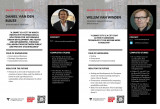
This week, meet Willem van Winden and Daniel van der Buusse, working on innovation ecosystems and the role of different organizations within smart city projects.
Are you interested in their expertise, do you want to know more or want to connect? Feel free to get in contact.
They recently published a paper about upscaling of smart city projects:
https://www.researchgate.net/publication/319496333_Smart_City_Pilot_Projects_
Exploring_the_Dimensions_and_Conditions_of_Scaling_Up
We successfully matched smart city researchers and professionals at our smart city academy event
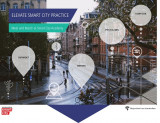
On the 16th of January 40 smart city professionals met our smart city researchers at the Amsterdam University of Applied Science. Our researchers presented their fields of knowledge, projects and tools. After which the Smart city professionals took the stage and pitched their smart city issues in order to win one of our research vouchers (equals one fulltime week of research). Each organization was matched with one of our researchers in order to start a research or student project.
The ambition of the smart city academy is to make our knowledge and tools more visible and applicable to smart city professionals. That’s why we for example presented our projects on upscaling, business models, entrepreneurship and learning, user design, stakeholder engagement and data. We showed a couple of our tools, like ‘the multi stakeholder multi criteria analysis’ (MAMCA), which can be uses to discuss and weight the interests of stakeholders in smart city initiatives. And our multi stakeholder business canvas, that is still in development, which helps finding a viable business model that suits the needs for all involved stakeholder your smart city project.
The researchers and organizations that brought up their smart city issue will continue with drawing up a research question which will be evaluated by the smart city academy professors; at the end of January. We will grant four research vouchers to the most promising combinations.
Big thanks to Mark Deakin for giving a key note on his research on sustainable smart city developments and offering a theoretical framework. And to those brave enough to climb up the soap box and present their smart city issue. We showed once again that a smart city is indeed a learning city!
Are you curious about our researchers and their ambitions? Starting a project together of doing a masterclass on one of the subjects mentioned above? Contact the academy at smartcityacademy@hva.nl and find us on the website.
Interesting read on Dutch smart cities by the Rathenau institute
(Dutch publication only, unfortunately)
The research focusses on the smart city activities of the largest municipalities in the Netherlands. It is a series of three articles including: What do Amsterdam, Rotterdam, Den Haag, Utrecht en Eindhoven (G5) do with data and smart technology? What are the consequences for public values, such as privacy, online security and autonomy? And how do municipalities cope with these values in their projects?
1. Cities driven by data
2. Are smart city practices putting pressure on public interests?
3. How do municipalities protect the public values in the smart city?
The Road to Barcelona - The Interviews Part 6: RecyQ Zero Waste International
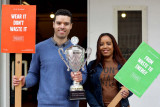
The Smart City Expo World Congress in Barcelona is getting closer! Next week the Holland Pavilion will be filled with Dutch companies. One of them is the start-up RecyQ, working on the circular economy. We talked to Richard Severin.
How does RecyQ work?
Richard: ‘RecyQ makes more from waste by combining the hyperlocal bottom-up approach with technological possibilities. Our business is to get people to become more of waste problems and show them that waste separation is very useful. Together with our partners, amongst others the City of Amsterdam, we set up a zero waste platform for people in Amsterdam to separate waste more easily. People can separate paper, plastics, glass and textiles in our store or in containers. We measure the amount and in exchange people get a crypto token with which they can buy stuff in local stores. Besides that, we show people through our app how much CO2 they saved. We do not only make sure there is less waste, we also transform waste into new products. For local communities, we are closing the loop of raw materials.’
How do residents react?
‘The responses we get from citizens are very positive. People see the future of sustainability happening in their neighbourhoods. We show people how to contribute to a better world and tackle climate change hands on. It makes the circular economy more visible to residents. Of course, not everybody is willing to join us, but we focus on the people who are open to our ideas and care about the planet we leave behind to our children. They will tell their neighbours about it. This way we get a lot of positive attention! And of course it helps that people get a reward for separating waste, especially for those in a less fortune financial position.’
Do you have any plans to scale up?
‘Yes, it is very important to show other countries and cities the value case for combining waste separation and reusing materials with smart city technology! We were asked by a few parties to investigate whether our waste management and recycling project could work in the rest of the world as well. We already presented in New York City and at the Asian Development Bank. We are thinking of setting up feasibility studies for other cities. Then cities can choose which parts of our zero waste menu they want to take into development. In the Netherlands we already did such a study for Amsterdam Zuidoost, resulting in the venture Zero Waste Zuidoost and there are some opportunities in other Dutch cities. These are the bigger urban cities in the Netherlands because in the smaller areas the waste and recycling problem is not as big. The Netherlands ranks top 5 in Europe when it comes to waste separation, but bigger cities are not doing so well. Scaling up for us is also part of the reason why we are going to Barcelona!’
Want to meet Richard Severin in Barcelona? Join us at the Holland Pavilion in Hall 2!
The Road to Barcelona - The Interviews Part 1: Live & Fun

In preparation for the Smart City Expo World Congress Barcelona, we spoke to Tania Kovalov. Together with her partner, she founded Live&Fun: a start-up and mobile app that allows users interact with virtual objects in the real world using smartphones. At the Expo (14-16 Nov), Live&Fun will be one of the companies to meet at the Holland Pavilion.
What does Live&Fun do?
Tania: ‘Live & Fun aims to stimulate desired behaviour with an app with gamification elements and rewards. Our solution is an augmented reality process where users can earn points for showing desired behaviour (think Pokémon Go).'
'Our solution provides not only a lot of fun for users, but also a way for municipalities to stimulate desired behaviour. At Rembrandtplein for instance, we have developed a quest in which we showed cyclists where they should park their bicycle. When they successfully did so, they were rewarded a free drink or ice cream from nearby restaurants. This example shows that Live&Fun is also a novel and unique advertising platform for local businesses based on augmented reality.'
Why should visitors of the Smart City Expo meet Live&Fun?
'We are a company that aims to increase social sustainability using gamification and technology. Cities face similar problems related to traffic, parking, public health, crowd-managing and tourism, but not all cities overcome these problems in a friendly way. We can provide a municipality the tools to resolve these urban problems through rewarding (instead of ticketing) people.. At the Expo, we hope to express our motto that behaviour change should be made fun. In co-creation with municipalities, we can develop solutions to urban issues that do not limit one’s sense of freedom.'
What does the future hold for Live&Fun?
'We will continue to search for cases where our solutions can be implemented. Together with our skilled team, we aim to deliver friendlier solutions to social issues within the municipality of Amsterdam. We dream of cities in which the relation between government and citizens is characterised by rewarding instead of fining: driven by positive instead of negative stimuli. We hope to create unique and interactive experiences for citizens and visitors and connect them with the city in unimaginable ways.'
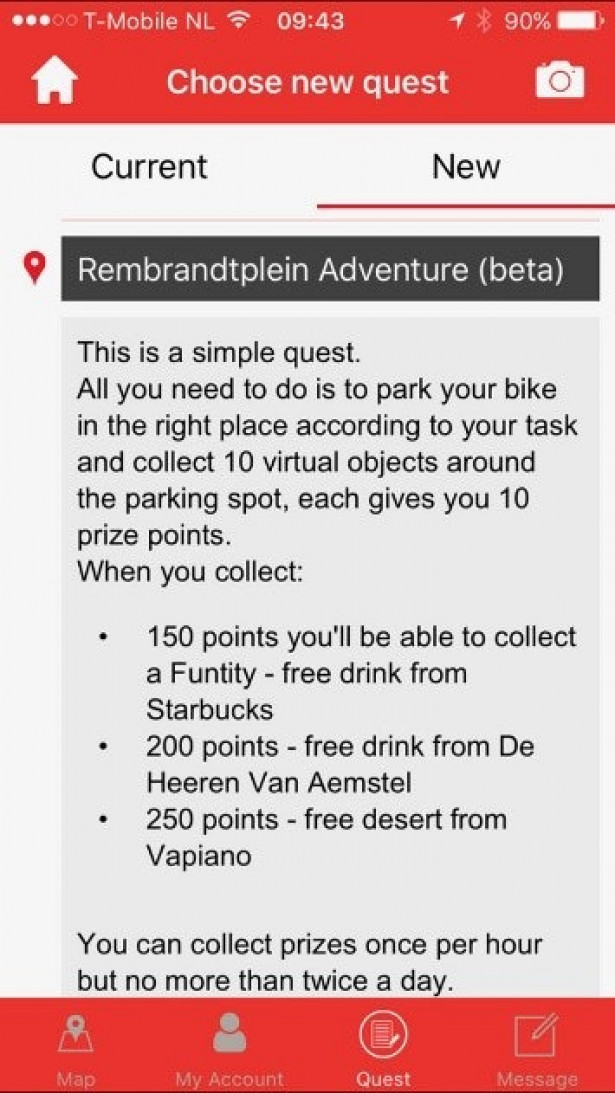
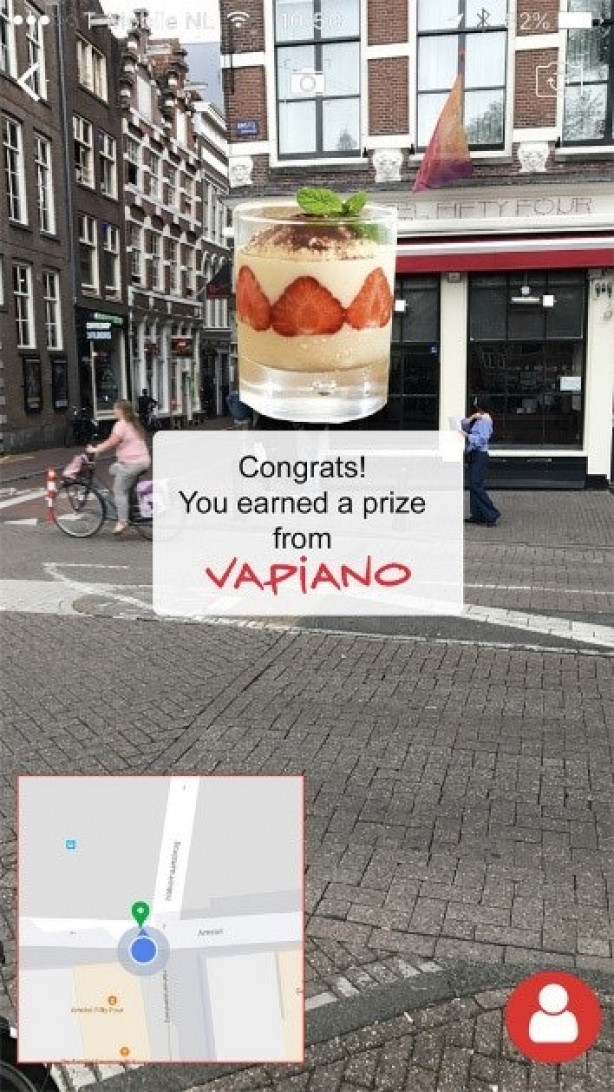
Want to know more about the Smart City Expo?
Amsterdam – A Data-driven City Of Europe
The smart city projects of Amsterdam overlay 8 primary categories that include big and open data, smart infrastructure, smart mobility, smart economy, smart society, smart areas, smart living and living labs.
The secret to citizen engagement. Lessons from a Manchester success story.
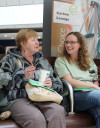
Does your project’s success depend on the involvement of citizens? But are you struggling to interest or motivate them?
In Manchester, Dave Coleman and his team have developed a method with which they have so far managed to excite and engage over 4.000 people about climate change. Not just the usual suspects, but people from all walks of life, such as Somali refugees, unemployed social housing tenants and children.
Curious to know what their secret to success is? Read it here
A few minutes ago we were all nodding our heads in agreement but now everyone in our meeting room fell silent. None of us had an answer to the question that had just been raised: “Involving citizens is important to our project but how do we make it happen?” As the silence continued, I realized: we are all citizens ourselves but as professionals we struggle with how to get ‘them’ on board with ‘us’. How odd…
Citizens never really central and seldom part of project partnership
When I started doing a bit of research on the subject, I found out we were not the only ones having a hard time. Recent research on smart city projects from the University of Amsterdam (UvA) said: “In most smart city definitions, citizens are considered to be the key users and should be the main focal point for the smart city technologies that are being developed. In the projects we evaluated, we rarely found evidence of this. Citizens were never really central and seldom an official part of the project partnership”
I sighed with relief - thank goodness, it’s not just us! Apparently many of us working in energy transition or smart city projects struggle when it comes to engaging citizens.
But off course that wasn’t actually good news. If we want to create change, and have an actual impact, we need people to (want to) join our projects or causes. But how?
Good communication alone is not citizen engagement
For many of us it’s common practice that, after the project is carefully planned and designed, we bring in the creatives and ask them to develop a sticky campaign to arouse citizen enthusiasm and involvement. When this doesn’t get the response we hoped for, we blame the campaign. This, as it turns out, isn’t quite fair (according to the UvA research):
*“Often assumptions were made about what citizens wanted or needed, without being thoroughly verified by consultation with those citizens. Moreover, many mistakes were made in determining the way of involving users in the project.*”
So, as communications expert Alec Walker-Love[1], working extensively on the subject, puts it: “Citizen engagement requires good communication – but good communication alone is not citizen engagement.”
So what is? What is the secret to citizen engagement? The subject started to feel like a mysterious black box to me; what on earth gets citizens going? Or, even better, gets them to stand still and reconsider their thinking or behavior?
Involving over 4.000 ‘unusual suspects’ in climate change
Salvation came unexpectedly. Last March, when visiting Manchester, we had the pleasure of meeting Dave Coleman co-founder and Managing Director of the Carbon Literacy Project (and member of our City-zen Advisory Board). He amazed us. With the Carbon Literacy Project he had so far managed to excite and engage over 4.000 people (!) in and around Manchester about climate change. Not just the usual suspects, but people from all walks of life, such as Somali refugees, unemployed social housing tenants and children. I couldn’t wait to get the inside line from Dave to how this was done. Fortunately he was willing to share it all.
The Carbon Literacy Project emerged from Manchester’s climate change action plan ‘Manchester: A Certain Future’, written in 2009. Next to an ambitious goal for reducing the city’s CO2 emissions, the plan pledged to ‘engage all individuals, neighborhoods and organizations in Manchester in a process of cultural change that embeds ‘low-carbon thinking’ into the lifestyles and operations of the city’. You can’t however expect a process of cultural change to happen if people don’t have enough knowledge or understanding of the carbon impacts of their activities. So one of the objectives of the plan was to make people ‘carbon literate’.
In 2010 Dave and his ‘Cooler Projects’ business partner Phil Korbel, decided to take up the carbon literacy challenge. Because, as Dave put it; “if we want change, we need people to just get it”.
The Carbon Literacy Standard: anything but standard

This was no easy task. The aim, as formulated in the plan, wasn’t to develop some kind of awareness campaign but to offer every citizen within Greater Manchester ‘one days’ worth of learning’ about climate change. Dave and Phil brought together a voluntary 30-person working group, consisting of people drawn from all sectors, to work collectively in developing an approach to engage people. They called it ‘The Carbon Literacy Standard’. Their approach however is anything but ‘standard’. Instead of developing an ‘off-the-shelf’ training course to make people ‘carbon literate’, they decided to create a different kind of program. One that turned out to be very successful because it has adopted a very distinctive (learning) method. A method in which people not only gain knowledge about climate change but actually become involved in the subject and start to care about it.
3 ESSENTIAL LESSONS FROM MANCHESTER
So what is their method all about? How do they manage to turn those heads around and influence behavior? The answer is both short and simple: by putting those they want to reach at the heart of everything they do. They don’t focus on what they want or think is important but on what is meaningful to others and works for them. Is it that simple? Yes it is. The hard part off course is in actually doing it. And how. Here are three key elements the CLP works by that are universally applicable to every project whose success depends on engaging others:
1. Always speak in terms of the other man’s needs
At the Carbon Literacy Project they focus on what they call ‘local learning’: trying to make whatever you are trying to teach (or tell) as relevant as possible to the person at the other side of the table. “Nobody will show up just to talk about climate change” Dave explains “it all starts with finding common ground. Talk about something they are interested in and show them how climate change is tied up with that.”
Dave illustrates this with an example: How do you reduce the number of FC United fans driving to soccer games? Not by telling them it is better for the environment to take public transport but by talking about things they care about: “take the Metro and everyone can have a beer, you travel together with your mates, you will save a few pounds and you don’t have to worry about finding a parking spot…. “ Or by enhancing their pride of FC United: “our club is doing something about climate change and we are going to do it much better than others.”
Dave emphasizes that is important to “always speak in terms of the other man’s needs” referring to one of the principles from Dale Carnegie’s famous book ‘How to win friends and influence people’. “Ask yourself; what are they interested in right now? And then try to find the overlap. It is all about shaping it into somebody else’s needs or interests.”
Dave’s words remind me of a quote by another bestselling author[2]: “First seek to understand and then to be understood.” If you want to engage people into whatever your cause is, first make an effort to immerse yourself in what is important to them. Only then you will know how to spark their interest. Now of course that isn’t always easy but it will pay off; it will earn you people’s attention and willingness to be involved in your project.
2. Invite those that are essential to your project in from the start
At the Carbon Literacy Project they believe they can’t know what kind of training works best for you, your group, community or organization. What works well in one group or community might fail in another. That’s why they have embraced a concept that Dave calls ‘crowdsourcing the training’. Which means you – the person working to achieve Carbon Literacy in your group - get all the help and input you need, but you customize the training for your group and, whenever possible, deliver it yourself too (more about that in #3). As Dave says: ““We don’t focus on form but on outcome”. They trust that, with the right guidance, these ‘trainers’ will be able to put together a better working training program, fitting the needs and interests of their own group, than CLP would have. And thus creating a better outcome.
In addition, they emphasize the importance of a concept called ‘group enquiry’. This means that during a training you do not tell people what to do differently to reduce their carbon impact but you let the learners, with input of expert knowledge and peer support, jointly find their own answers and devise their own solution. Or as Dave puts it: “We just create the space, provide the necessary knowledge and people find their own way to the answers” This maximizes the participants’ sense of independence, expertise and purpose in responding to climate change and thus will increase ownership and their motivation to act further.

So how does that translate to us working in smart city or energy transition projects? If you want to influence people’s thinking or behavior, do not only immerse yourself in what is important to others but also invite them in from the very start. Don’t try to put it all together by yourself first and then reach out, but work together with those that are essential to your project from the very beginning. You can be the driving force but put your ego aside: be open to unexpected ideas and approaches of others. This will not only create a better outcome but it will also boost enthusiasm and ownership with those that are essential to the success of your project.
3. Focus on a peer-to-peer approach
At the Carbon Literacy Project they believe that “training is most trusted and best delivered by peers”; people who, to the learner, “feel like themselves”. Dave explains: “Information becomes more credible when it is told by peers, by ‘people-like-you’, not some expert talking down. I, for example, wouldn’t be credible to most soccer fans. I simply don’t look and sound the part. It’s better to take somebody they already respect. Someone they share a common background with. Research shows that peers are the most trusted source of information” That’s why Carbon Literacy training is mostly delivered by someone from the group it focuses on.
So, if you want people to be open to your project, work together with a few (respected) members of that specific community. Find likeminded people and involve them as your local ‘ambassadors’ and work together from the start in formulating your message and determining the way of approaching people.
Stating the obvious?
Now to many these three lessons from Manchester might feel like stating the obvious. Nothing new. And you are right. Deep down most of us already know these things. And that’s great. But we don't always do them. Now what it takes is courage. Courage to start putting what we know into practice. And making an effort to really connect. Because, let’s face it, engagement is a two-way activity. And it starts with us.
[1] Alec Walker-Love is co-writer of ‘Report on innovative citizen engagement strategies’.
[2] Stephan Covey - ‘7 habits of highly effective people’
Wanted: more assignments for Futureteams

Every organisation can come across a problem they need help with. Maybe Futureteams can assist! To prepare Business and Management students of the Amsterdam University of Applied Sciences for a future in Business they have the opportunity to work as a consulting agency, Futureteams, and solve real problems organisations might have. We are looking for organisations in the fields of: Health, Mobility, Tourism, Smart Cities or Financial Services.
Joep de Hoog has had a lot of response, but has room for a few more, you can sign in untill the 25th of September.
The students will put in effective work hours and there is no need for training or a work space. You can find more about the project on https://amsterdamsmartcity.com/projects/futureteams-can-take-on-new-assignments or here:
https://sites.google.com/enmeer.com/wervenopdrachtgevers/home (in Dutch)
MensenWerk: Planning for the Future of Urban Living
The work landscape is changing rapidly. The future workplace is becoming less predictable with flexibility, democratization and robotization as key words of the ongoing change. How can spatial planning follow and adapt to these rapid economic and technological changes remains a critical question. SPCitI most recent research project looks exactly at that.
Can start-ups help to make the city more attractive?
Can start-ups help to make the city more attractive? Luis Carvalho and Willem van Winden (Amsterdam University of Applied Sciences) draw lessons from Amsterdam’s “Start-up in Residence” programme.
Amsterdam is exploring ways to engage start-up companies in the development of new solutions for urban problems and challenges, ranging from reducing bicycle theft, separating waste streams more effectively, or promoting alternative tourism. We analyse this new practice and its impact, by interviewing opinions and experiences of startups, city departments involved, and experts.
We derive recommendations for improvement and practical guidelines for other cities that may want to start a similar programme.
The results will be elaborated in a paper, to be presented at the prestigious RENT conference in Lund, Sweden. http://www.rent-research.org/rent-xxxi
Watch now the Webinar EIP-SCC on "organising smart city projects"
This webinar gives some insights into the research on 12 Amsterdam Smart City projects, conducted by the Amsterdam University of Applied Science together with Amsterdam Smart City.
From minute 9.37 onwards, professor van Winden presents the wide context of smart projects, focusing on non-technological aspects of smart city projects. He addresses several challenges commonly faced during smart projects; for example, the collaboration of organisations with different agendas and the involvement of different stakeholders and how to divide returns and risks. From minute 40 onwards professor van Winden answers some questions coming from the audience who attended the webinar live at the 6th of june.
Amsterdam neighbourhood and the City join forces for 'sociocracy'
De Weteringbuurt in Amsterdam Centrum en het bijbehorende stadsdeel van de Gemeente Amsterdam gaan samen voor een onderling betere balans in lokale besluitvorming. Zie hier het artikel in Parool. Enjoy!
Organising Smart City Projects: Lessons learned from Amsterdam
The last two years, our partner the University of Applied Sciences systematically analysed 12 smart city projects in Amsterdam. In close cooperation with Amsterdam Smart City five researchers started a thorough evaluation of projects to draw lessons and make future smart city projects more effective.
The idea was to analyse the non-technological aspects of smart city projects
(partnerships, business models, scaling potential) since smart city solutions are not just about developing and applying technology. It demands new networking and management competencies. Solutions are not developed and implemented by one single company, but take shape in networks and with the involvement of citizens/end users. Partnerships are formed, they all work differently and face different challenges. In this study, a number of smart city projects in Amsterdam is analysed in their wider context.
This final report is now out and focuses on questions as:
- How do organisations with different agendas, collaborate on smart city projects?
- What challenges do they face?
- What kind of value is created?
- How are risks and returns shared, and how are users involved?
- What is the upscaling dynamic of smart city solutions, if any?
- How can smart city projects be managed professionally?
You can open the report below. This report is issued by the Amsterdam University of Applied Sciences and has been established in cooperation with Amsterdam Smart City.
On the 19th of December 2017 the insights of the report were shared at Pakhuis de Zwijger: https://amsterdamsmartcity.com/events/lessen-uit-een-slim-amsterdam
Are you interested in doing research together or do you have a smart city question? Get in touch via https://amsterdamsmartcity.com/projects/smart-entrepreneurial-lab.
Summary of the report here: https://drive.google.com/file/d/1ZexHe85DpGmpHjlPa9kam-TYUsUIR8Jp/view?usp=sharing
Smart city pilots: scaling up or fading out?
We studied 12 smart city projects in Amsterdam, and –among other things- analysed their upscaling potential and dynamics. Here are some of our findings:
First, upscaling comes in various forms: rollout, expansion and replication. In roll-out, a technology or solution that was successfully tested and developed in the pilot project is commercialised/brought to the market (market roll-out), widely applied in an organisation (organisational roll-out), or rolled out across the city (city roll-out). Possibilities for rollout largely emerge from living-lab projects (such as Climate street and WeGo), where companies can test beta versions of new products/solutions. Expansion is the second type of upscaling. Here, the smart city pilot project is expanded by a) adding partners, b) extending the geographical area covered by the solution, or c) adding functionality. This type of upscaling applies to platform projects, for example smart cards for tourists, where the value of the solution grows with the number of participating organisations. Replication is the third and most problematic type of upscaling. Here, the solution that was developed in the pilot project is replicated elsewhere (another organisation, another part of the city, or another city). Replication can be done by the original pilot partnership but also by others, and the replication can be exact or by proxy. We found that the replication potential of projects is often limited because the project’s success is highly context-sensitive. Replication can also be complex because new contexts might often require the establishment of new partnerships. Possibilities for replication exist, though, at the level of working methods, specific technologies or tools, but variations among contexts should be taken into consideration.
Second, upscaling should be considered from the start of the pilot project and not solely at the end. Ask the following questions: What kind of upscaling is envisioned? What parts of the project will have potential for upscaling, and what partners do we need to scale up the project as desired?
Third, the scale-up stage is quite different from the pilot stage: it requires different people, competencies, organisational setups and funding mechanisms. Thus, pilot project must be well connected to the parent organisations, else it becomes a “sandbox” that will stay a sandbox.
Finally, “scaling” is not a holy grail. There is nothing wrong when pilot projects fail, as long as
the lessons are lessons learned for new projects, and shared with others. Cities should do more to facilitate learning between their smart city projects, to learn and innovate faster.
(With a team of five researchers of the Amsterdam University of Applied Sciences (AUAS/HvA) we systematically analysed several smart city projects in Amsterdam. This post includes one of the key insights into the management of smart city projects. The report with all our findings will be published next week on the online platform Amsterdam Smart City).
Stay up to date
Get notified about new updates, opportunities or events that match your interests.

